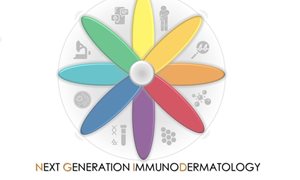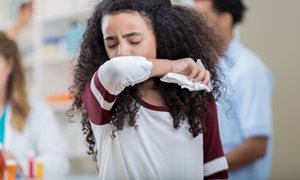
Effective 1 March 2021, Nico Sommerdijk has been appointed Professor of Bone Biochemistry at Radboud university medical center/Radboud University. He will focus on research into the molecular formation mechanisms of bone, particularly the mineralization process, using advanced electron microscopy.
Mineralization in our bones is one of the most important processes in our body, as it not only enables us to move and protect our vulnerable organs, but also regulates the calcium household in our body and many crucial processes. Because people get older, bone-related diseases such as osteoporosis are becoming an increasingly important concern for our health care system. Nevertheless, we still know very little about the molecular mechanisms of bone formation and how bone diseases disrupt the mineralization process.
Mineral formation in biological systems
Nico Sommerdijk (1963, Hernen) studied chemistry at the Katholieke Universiteit of Nijmegen, where he obtained his doctorate cum laude in 1995 on the thesis "Tuning the molecular organization of amphiphilic molecules" with professor Binne Zwanenburg and professor Roeland Nolte as promoters. During his work as a postdoc at the University of Kent (UK), Keel University (UK) and then again at Radboud University he became fascinated by how organisms are able to use inorganic materials for a variety of functions such as protection, support, navigation and the conduction of light. This was the starting point for his research at Eindhoven University of Technology where, from 1999 to 2019, he imitated biological mineralization processes and investigated their mechanisms in detail with advanced electron microscopy. This research was supported by the Dutch Organization for Scientific Research (NWO) through Vidi, Vici and TopPunt grants and led to his growing fascination with unraveling the formation mechanisms of our own biominerals: our bones. In 2018 Nico Sommerdijk received an ERC Advanced Invesitgator grant of €3.5 million for research into the molecular mechanisms of bone formation.
Unraveling the molecular mechanisms of bone formation
Since 2019 Nico Sommerdijk works as a researcher within the Department of Biochemistry at Radboud university medical center. In Nijmegen he has set up a research group Bone Biochemistry, with which he investigates how the hard material of our bones is formed through the mineralization of collagen and what role proteins and sugars play in this process. To this end, he uses organoids (3D cell cultures that form bone tissue) to follow these processes in detail with a named "Google Earth" approach. In doing so, he uses a combination of several advanced microscopic techniques to zoom in on the material down to the nanometer scale. To do so he has established a new electron microscopy center within the Radboud Technology Center Microscopy together with Anat Akiva. With this approach, Nico Sommerdijk will research the processes in kissed bones and also in bones with genetic disorders, such as osteogenesis imperfecta (also called brittle bone disease). By using stem cells as a basis for his organoids, he can not only investigate patient-specific defects, but also contribute to personalized healthcare by, for example, investigating and helping to optimize the patient-specific effect of drugs.
-
Want to know more about these subjects? Click on the buttons below for more news.
More information
Pauline Dekhuijzen

wetenschaps- en persvoorlichter
Related news items

Rubicon grants awarded to three RIMLS researchers
19 April 2022Three researchers have received Rubicon funding from NWO/ZonMw. This will enable Elke Muntjewerff, Laura de Vries and Laurens van de Wiel to do research at a foreign research institute for the next two years.
go to page
Large NWA ORC grant awarded for national skin research: Next Generation ImmunoDermatology
23 March 2022Research for better treatment methods for chronic skin diseases.
go to page
NWO-Groot grant awarded to Nico Sommerdijk for groundbreaking research with electron microscopy
21 May 2021NWO Large grant awarded to Nico Sommerdijk and colleagues
go to page


